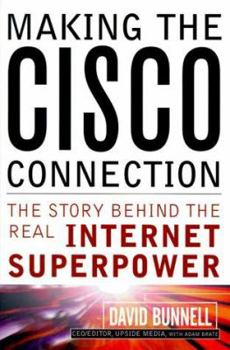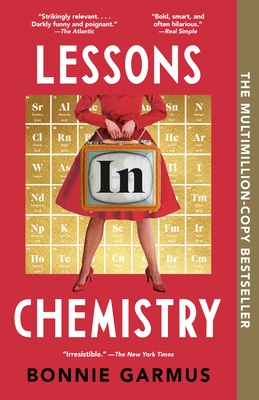Making the Cisco Connection: The Story Behind the Real Internet Superpower
Customer Reviews
Rated 5 starsHelpful Guide to 1990's and 2010's
I bought this book because Vint Cerf says the Internet will go from 3.5M users today to 3.5B users in 10-15 years, and that means that businesses involved in Internet infrastructure--and especially multi-media multi-lingual narrowcasting--have a growth (or implosion) prospect on the order of 1000X. The book tells a helpful story about CISCO's growth in 12 years, and I for one found it both well-written and fascinating. ...
0Report
Rated 5 starsA Modern Saga Still in Progress
Bunnell provides a brilliant analysis of Cisco Systems, one of the most successful corporations in history. He organizes the material within nine chapters: The Truth Behind the Cisco Legend (1984-1987), The Morgridge Years (1988-1995), The Inner Chambers (1977-1995), The Benevolent Predator (1996), A Day in the Life, Routing the Industry (1997-1998), The Virtual Corporation (1997-Present), The New Battle (1996-1998), and...
0Report
Rated 5 starsCisco is the network?
There is no free lunch but there could be free voice; and if "Voice of the people is the voice of God", Cisco will soon be handling the bulk of it. John Chambers is working and waiting for this to happen !.The book begins with an excellent foreword from Karen Southwick and when David Bunnell starts with the main story he is at his best. It is amazing to see Cisco's ability to acquire and integrate dozens of companies ...
0Report
Rated 5 starsComprehensive and Clear
I really think the previous reader was being a bit unfair to the book--though I'm not a Cisco insider, so there certainly could be errors. He complained that the book didn't talk about Cisco almost giving away its source code? The biggest mistake he can think of is that Cisco _almost_ did something wrong. I found the book to not be a puff piece at all--it's definitely from an outsider's point of view. "Making the Cisco...
0Report
Rated 5 starsInformative, Concise, No Silicon-Valley Tabloid Nonsense
Doing justice to what today is a $452 billion dollar company, is fundamentally a challenge, to do so in such a brief book is outstanding.In the short time since this book was written, Cisco has passed the landmark of a 300 billion dollar Market Capitilization, as mentioned in the book, and raced right through $400 billion and even $450 billion. It is now the 2nd most valuable company in the world, second only to Microsoft,...
0Report




















